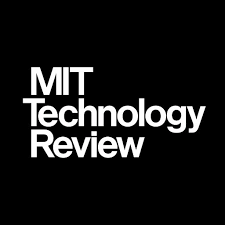
Informed i’s Weekly Business Insights
Extractive summaries and key takeaways from the articles carefully curated from TOP TEN BUSINESS MAGAZINES to promote informed business decision-making | Since 2017 | Week 369 | October 4-10, 2024 | Archive

Geoffrey Hinton, AI pioneer and figurehead of doomerism, wins Nobel Prize
By Will Douglas Heaven | MIT Technology Review | October 8, 2024
Extractive Summary of the Article | Listen
Geoffrey Hinton, a computer scientist whose pioneering work on deep learning in the 1980s and ’90s underpins all of the most powerful AI models in the world today, has been awarded the 2024 Nobel Prize in physics by the Royal Swedish Academy of Sciences. Speaking on the phone to the Academy minutes after the announcement, Hinton said he was flabbergasted: “I had no idea this would happen. I’m very surprised.”
Hinton shares the award with fellow computer scientist John Hopfield, who invented a type of pattern-matching neural network that could store and reconstruct data. Hinton built on this technology, known as a Hopfield network, to develop backpropagation, an algorithm that lets neural networks learn.
Hopfield and Hinton borrowed methods from physics, especially statistical techniques, to develop their approaches. In the words of the Nobel Prize committee, the pair are recognized “for foundational discoveries and inventions that enable machine learning with artificial neural networks.”
But since May 2023, when MIT Technology Review helped break the news that Hinton was now scared of the technology that he had helped bring about, the 76-year-old scientist has become much better known as a figurehead for doomerism—the idea that there’s a very real risk that near-future AI could precipitate catastrophic events, up to and including human extinction.
Doomerism wasn’t new, but Hinton—who won the Turing Award, the top prize in computing science, in 2018—brought new credibility to a position that many of his peers once considered kooky.
Hinton’s views set off a months-long media buzz and made the kind of existential risks that he and others were imagining (from economic collapse to genocidal robots) into mainstream concerns. Hundreds of top scientists and tech leaders signed open letters warning of the disastrous downsides of artificial intelligence. A moratorium on AI development was floated. Politicians assured voters they would do what they could to prevent the worst. Despite the buzz, many consider Hinton’s views to be fantastical.
3 key takeaways from the article
- Geoffrey Hinton, a computer scientist whose pioneering work on deep learning in the 1980s and ’90s underpins all of the most powerful AI models in the world today, has been awarded the 2024 Nobel Prize in physics by the Royal Swedish Academy of Sciences. Hinton shares the award with fellow computer scientist John Hopfield.
- The 76-year-old scientist has become much better known as a figurehead for doomerism—the idea that there’s a very real risk that near-future AI could precipitate catastrophic events, up to and including human extinction. Hinton’s views set off a months-long media buzz and made the kind of existential risks that he and others were imagining (from economic collapse to genocidal robots) into mainstream concerns.
- Hundreds of top scientists and tech leaders signed open letters warning of the disastrous downsides of artificial intelligence. A moratorium on AI development was floated. Politicians assured voters they would do what they could to prevent the worst. Despite the buzz, many consider Hinton’s views to be fantastical.
(Copyright lies with the publisher)
Topics: Humans and Technology, Artificial Intelligence, ChatGPT, Physics
